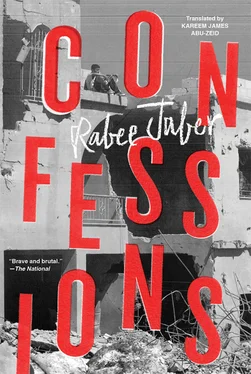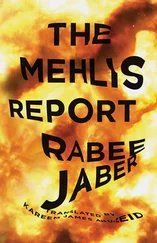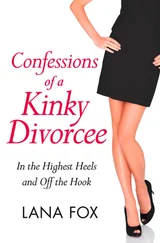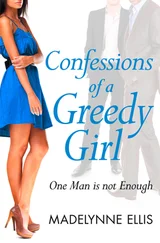I remember some details, like the wood-burning stove — you don’t find those stoves on the coast, right? They’re for cold climates, for the mountains. I could see the stove, the carved iron handle of the oven’s small door. They told me to be careful when I opened the oven. My father did. I heard his voice, I smelled tobacco and sweat. That was his smell. I saw lemon peels roasting on the stove, their aroma filling the room. I heard his voice: “Don’t leave the kitchen door open.” Who was he talking to? The kitchen was warm, but the hallway was cold. I saw a window, I saw snow falling outside. I saw a trellis with grapevines climbing up the sides. I saw snow covering the branches, covering the ground, covering the water tank behind the trellis.
Some dreams repeat themselves, and some recede like the sea, never to be seen again. The years have gone by, and now I have fewer dreams. A couple years ago, I saw myself walking on a dirt road that ran through fields of fruit trees, and my father was walking in front of me. I saw him from behind, and I saw his hands, and the hair on the back of his hands, and from time to time he’d reach out and pick a leaf from one of the trees. I was waiting for him to turn around, waiting to see his face. I wanted to see that face. The sun was bright, shining on the leaves. I saw grasshoppers jumping in the sun-dried grass and a lizard basking on a rock. At a certain moment, I noticed my father had stopped and turned around: he was looking at me, he was staring straight at me while I looked around at the scenery, and he was smiling. I knew he was smiling. I lifted my gaze and looked at his face and knew he was smiling, but I didn’t see his face. In other dreams he calls me by my name and asks me for something: I say something — I don’t know what — and start walking toward him…. But it seems like there’s distance between us, like I have to cross that distance to get to him. At the halfway point, before I’ve reached him, I always wake up.
I’m telling you about these dreams not because they mean something, but because you asked. At one point it occurred to me to write the dreams down in a notebook. I thought that if I gathered all my dreams in one place and started to read them I might be able to put together whole scenes of my life from before ’76. I didn’t do it. I tried once. I wrote down a dream. But when I read it I discovered I hadn’t written anything. I’d written some words, but they didn’t recreate the dream for me. I don’t know how to write. Writing’s hard. When I wrote down that dream, I got lost in the details and couldn’t figure out how to return to the scene I wanted to describe. The whole scene was lost in the details, and I couldn’t find my dream in them. I didn’t try again after that. Maybe I’d have more luck if I tried now. But I have fewer dreams these days. And when I do have dreams, they have nothing to do with my childhood: the years have gone by, and memory’s palace has grown. New memories have formed on top of the old ones, and one floor buries another. My dreams have changed.
I love my work now: I love teaching, and I love the time I spend at the firm. Most of my work is directive, and our projects are split between Lebanon and the Gulf. At one point we wanted to expand (the others wanted that, not me — I generally prefer teaching to being at the firm). But we have a reasonable number of projects now, and we didn’t expand. Sometimes I travel to Europe for work, and sometimes I travel on vacation. I’ve often thought about building a house somewhere in the country. With the passing of time, I’ve discovered I love nature. I love trees and I love gardening.
I’ve been living here for many years now. From the window (this window right here) I watch the sea at night. I watch the fishing boats, I watch the lights sailing away — I can’t actually see the boats, but I can see their lights. I think I’ve spent many years of my life looking at those lights. There were times when they used to disappear, when night fell and the lights couldn’t be seen. That would last a little while, but then a night would come when I’d see the lights again.
From that window over there, I look at the trees on the campus. I love those trees. They’re old, and they were all brought in from distant places. They’re still standing after all this time: they stay green the whole year round, and the birds build nests in them. In certain seasons, some of those trees are covered with red flowers that fill the air whenever the wind blows — you wouldn’t believe how bright those flowers are.
I’m not young anymore. I’m close to forty now, and I can feel the years I’ve lived. The following date is inscribed in my passport and on my ID: September 29, 1971. But to this day I don’t know the date of my birth. I don’t feel like I’m thirty-seven, and I don’t feel like I’m forty: I feel older than that. I don’t consider myself depressed, but that doesn’t stop the weight of the years from bearing down on me. Most of my friends are older than I am: I have two close friends here, at the university, and I have some friends outside the university, but most of them are older than me. That’s strange, isn’t it? Antoine once wrote that my sense of time has something to do with not having married yet. I asked him (we write e-mails to each other) if he got younger when he married. He replied with a smiley face. Maybe he’s right.
I haven’t gotten married, but I feel at peace. There were periods when I found it difficult to be alone. Now I’ve gotten used to it. I almost got engaged a few years ago, but then I didn’t. When I tell you this now, I remember — I don’t know why — a symposium at the university before I graduated. One of the associations for the kidnapped and the deceased in the Civil War had organized a symposium and were handing lists out to the people present: they were lists of the names of those who’d been lost in the war and whose corpses hadn’t been found. No one knew, or no one could confirm, what had happened to them. I read those names, columns of names arranged like multiplication tables, and asked myself: Where’s my name? Is my name here somewhere and I don’t know it? And my mother? My father? My siblings? Are their names here too? But what if my father’s still alive? Or my mother? Or my siblings? How could I be so sure my family died in the car? Maybe they’re still alive. Maybe I’d gone out with a different family, with some relatives, with an aunt or an uncle — how do I know? Maybe my family’s still waiting for me, this very moment.
I don’t think about those things anymore, and I usually don’t talk about them. I don’t like talking. It’s been a long time since I’ve liked talking. I’d rather look out this window. I do like teaching, that’s true, but when you’re teaching you don’t feel like you’re talking. I don’t quite know how to say it, but words aren’t the same as numbers and symbols and laws and equations: when I’m explaining mechanical laws, I don’t feel like I’m talking. I feel like I’m silent. Silent and yet communicating with others. Silent and yet teaching others, guiding them. Silence: it’s good. But I’ve talked to you. That’s true as well.
I can tell what you’re thinking from the way you’re looking at me. But really, I’m not depressed. I’ll tell you something: years ago, it occurred to me to celebrate my birthday. I knew the date, September 29, was an arbitrary one, but I told myself it was my birthday and I was going to celebrate. I’d never celebrated my birthday before, and I don’t know why I thought about it just then, but that’s what happened. My favorite patisserie was nearby, and I got dressed and headed over there.
It was closed. The weather was hot, humid, and there was a lot of traffic on the street. But I didn’t turn around and go back. I remembered another patisserie I sometimes went to, farther away, but not too far. So I kept on walking. I said to myself: “If that one’s closed too, I’ll go back home.”
Читать дальше












